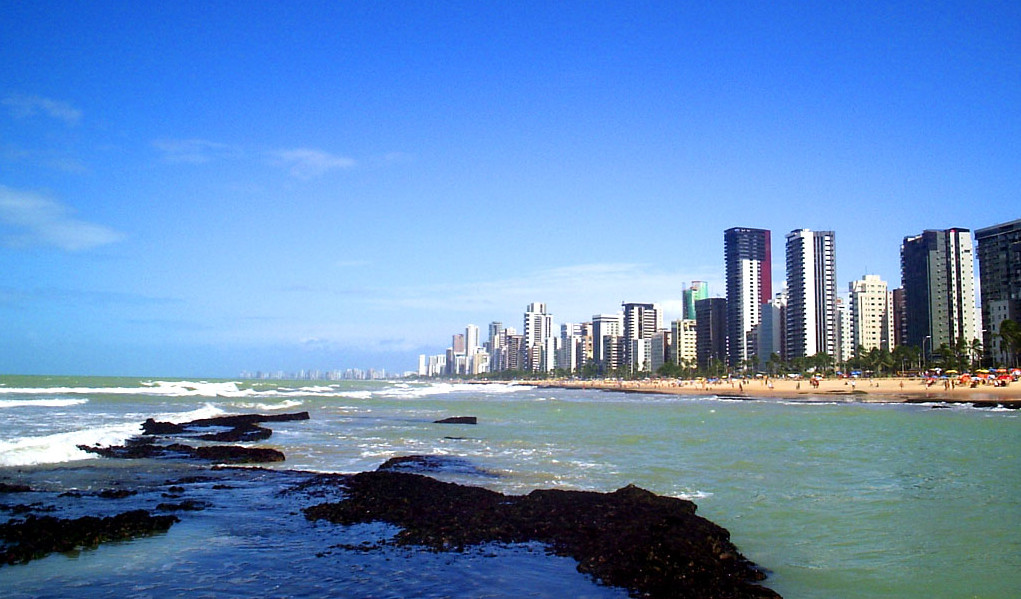Modern Brazil is a country defined by its optimism. Marked by a history of prosperous booms and repressive regimes, the country has often found itself at the doorstep of political and economic prosperity, just to be dragged back down by a coup or market failure. However, the brasileiros seem to have finally found their stride. Recently overtaking the U.K. as the world’s seventh largest economy in terms of GDP, the Latin American nation has enjoyed remarkable economic growth over the last decade, establishing a leading role in the region and the developing world in general. Indeed Brazil, the first initial in the BRICS club acronym, is now first among emerging markets everywhere, redefining the structure of First/Third World commercial relations.
Coming at a time when many “developed” countries are struggling to keep their economies from imploding, this achievement merits some close analysis. It has already caught the attention of sports enthusiasts, who will be watching Brazil closely as it hosts the 2014 World Cup and 2016 Olympics. Foreign academia has been attentive as well, as exemplified by Br
own own “Brazil Initiative,” intended to strengthen cross-national scholarship and to foster the growth of the Brazilian student and professorial community here on campus. As one of the leaders of this project, Professor Leah VanWey recognizes the preeminence of Brazilian scholarship, and by extension the country itself, when she contends that “Brazilian universities and professors are our equals [1].”
Clearly, the big wigs in Brasília have reason to be proud. Things that rise, however, have a pesky tendency of falling eventually. If Brazil wants to keep up its reputation as the poster child for the potential of the developing world, it must address the challenges that come with global economic relevance. A series of lectures presented in February at Brown University’s Watson Institute by Senator Cristovam Buarque shed light on what some of these challenges might be. Senator Buarque, an ex-Minister of Education and current senator from the Federal District of Brazil, shared insights gained over decades of political working experience, painting a thorough picture of the problems that Brazilians must address in order to keep up their country’s celebrated ascent. As his talks revealed, providing quality public education in Brazil is the key to maintaining the country’s recent economic success in the long term.
In this article, the first in a two-part series, I will describe and analyze Brazil’s ascent onto the global stage, using Senator Buarque’s lectures as a reference point. In my next piece, I will explain how current education policy fails to address the challenges of the future and I will consider, following Buarque’s logic, what Brazil must do in the present in order to preserve its newfound prosperity.
In the second of his conferences, entitled “Is the Rise of Brazil Sustainable?” and held on February 12, Senator Buarque traced the history of his country’s recent economic growth by starting at the source of this success. During much of the second half of the 20th century, Brazil went through an economic malaise of near disastrous proportions. It had the highest inflation rate in the world during this period, and things got so bad that the 1980’s are often called “the lost decade” for the country’s economy. Throughout the 80’s and early 90’s, extensive foreign debt, high levels of poverty and rising income inequality plagued the economy and threatened the new democracy, recently re-established after two decades of military dictatorship. The country became a byword for hyperinflation.
Many plans were put forward by various administrations in order to solve these issues, but they mainly addressed the surface symptoms of the fundamental economic problem and not its underlying causes. In 1994, however, then-Finance Minister (and now a Brown Professor-at-Large) Fernando Henrique Cardoso put forward a cohesive, well-structured economic strategy which essentially established the basis for Brazil’s contemporary achievements.
This was the Plano Real (Real Plan), a bill that enacted a series of reforms that completely overhauled the country’s monetary policy. The plan was implemented in a series of steps, the most innovative of which was the creation of an ‘imaginary” currency with a fixed exchange rate (Unidade Real de Valor) that functioned in tandem with the previously existing cruzeiro currency, which was used as physical cash. By eliminating the expectation of inflation as well as slashing public expenditures, the government succeeded in stabilizing prices and curtailing its obsessive printing of new cash.
The Plano effectively vaccinated Brazil from its chronic ailment of inflation. Investors regained confidence in the Brazilian government and Brazilian companies, and industries like agriculture and car manufacturing boomed as a result of a renewed credit flow. Entrepreneurs were able to tap into the country’s vast wealth of resources and overhaul flagging businesses. The Plano method was so effective that Minister Cardoso used the Plano Real as a major electoral platform during his successful presidential campaign—his first of two—In 1994.
The 21st century has been good to Brazilian markets, now that the Plano Real hit the brakes on Brazil’s vicious cycle of economic boom and bust. Like everybody else, the country was hit hard by the 2008 crisis, but it has managed to overcome early difficulties and even finished the 2011 fiscal year with its largest growth in GDP in 25 years. It is important to note, however, that this new situation has not erased many of Brazil’s problems, and it has in fact created new challenges that the country must soon confront. Part 2 of this series will examine the specifics of Brazil’s perennial education problem and its effects on the country’s celebrated status in the global economy. How the nation reacts to this challenge will have lasting repercussions on the now infamous ”rise of Brazil.”
